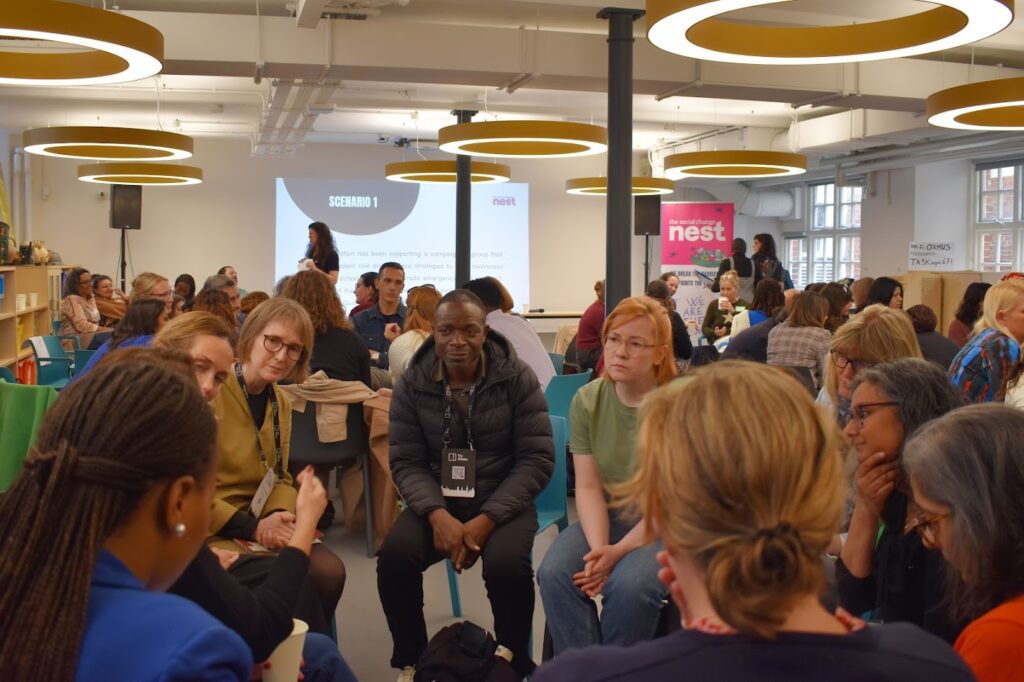AI Tools for Grassroots Groups
AI, AI, AI…
Over the last few months, you haven’t been able to go anywhere without hearing the words ‘AI’. There’s been a lot of talk about the potential of AI to revolutionise work across a range of sectors, from healthcare to the civil service to technology.
But what about AI for activism and grassroots campaigning? What tools can groups be using to increase their efficiency and scale their impact?
AI-backed social change
Whether you’re running a food bank, campaigning about the climate crisis or providing youth services, your grassroots group is likely voluntary-led, resource and time-poor. AI tools have the potential to take care of the burdensome administrative tasks that can take up so much precious time, allowing you to focus on your cause.
For example, AI tools can speed up tasks such as note taking, agenda setting, bid writing and creating content for social media.
Tools for grassroots groups
We’ve had a look into what tools are out there that could be useful for grassroots groups. Here’s what we’ve found…
- Charity Excellence: This service offers free AI funding bid writing services. Answer a series of key questions that funders are interested in and the AI will turn it into a compelling request for funding email.
- ClickUp: ClickUp helps nonprofits and grassroots groups to simplify operations and improve task management with built in AI. The platform has many useful features such as automating project summaries and progress updates.
- Framer: This site uses advanced AI tools that help you design your own dream website which is tailored towards meeting your goals.
- Tactiq: Attending an important meeting? Let Tactiq take care of the note taking. Get live transcription and smart AI summaries that allow you to make the most out of your meetings.
- ChatGPT: You’ve probably heard about ChatGPT by now. This is a versatile tool that can be used to help grassroot campaigns, from creating initial campaign ideas, drafting blogs, and social media posts as well as finding out about funding sources. The latest ChatGPT 4o, brings additional useful features including improved image generation with text, as well as the ability to act as a translator. Custom GPTs will soon be accessible on the free version (if it’s not already) which will open up a whole new set of tools!*
*Custom GPTs are now available on the free version of ChatGPT. If you’re looking for a place to start then try out the ‘Expert Grant Proposal Writer‘ - Gemini: Google’s ChatGPT competitor is worth keeping an eye on. It’s not as feature rich as ChatGPT, but its responses can sometimes be more concise and helpful. Plus, with the rate of change it won’t be long before Gemini catches up and possibly surpasses the capabilities of ChatGPT.
- Claude: If you need help in writing your grant proposal, or any long form content, then it’s worth taking a look at Claude. It tends to produce text which sounds a little less AI compared to ChatGPT and less salesy than Gemini.
Getting started
Before getting started with AI, it’s worth thinking about the challenges you face as an organisation. Do you struggle to find someone to take notes at your meetings? Do you need to fill out a funding application but you’re short on time? Do you need to write a letter to your MP, but not sure how to structure it? Pinpoint where you could use a little bit of help and then see if there’s an AI tool out there that can do it for you.
Bonus: Useful prompts for finding grants
Knowing how and where to apply for funding can be time consuming (especially if you’re not a registered charity). Thankful AI can help. Here are three great prompts from Charity Excellence to test out. You can copy and paste these into ChatGPT and then edit in your details.
Geographical
Please give me as many <UK, UK Country, region, county> charitable grant makers as possible that offer small grants to small, unregistered charities, and constituted community and grassroots groups, excluding any that require applicants to be registered charities. Include their websites and additional information if available on their priorities, locations, grant sizes, eligibility and sectors they focus on.
Sectors & Groups of People
Please give me as many charitable grant makers as possible that offer small grants to small, unregistered charities, and constituted community and grassroots groups that support <sector or group of people>, excluding any that require applicants to be registered charities. Include their websites and additional information if available on their priorities, locations, grant sizes, eligibility and sectors they focus on.
Funding Type
Please give me as many charitable grant makers as possible that offer small <project, core, capital, council, multi year> grants to small, unregistered charities, and constituted community and grassroots groups that, excluding any that require applicants to be registered charities. Include their websites and additional information if available on their priorities, locations, grant sizes, eligibility and sectors they focus on.
- Blogs
Want to win more grants?
Increase your eligibility for grants and funding with our fiscal hosting service

